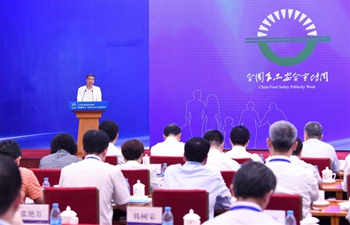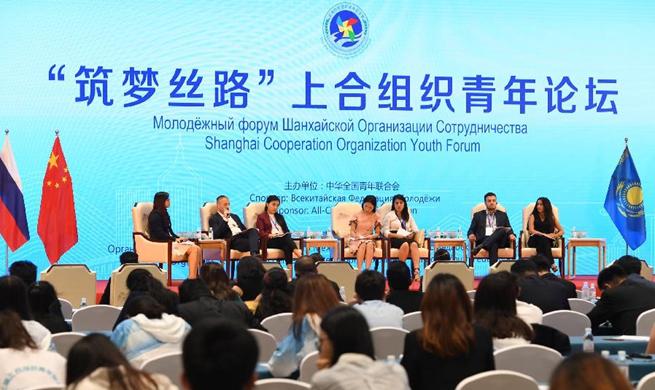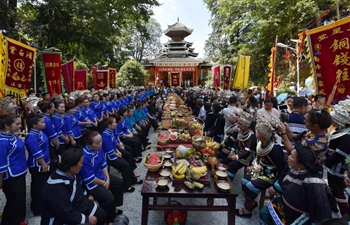HARARE, July 19 (Xinhua) -- The Zimbabwe Electoral Commission (ZEC) on Thursday refuted allegations made by an independent group that the voters' roll of the July 30 general elections is unclean and contains "ghost voters."
ZEC chairperson Priscilla Chigumba said in a statement that the commission had checked all the alleged ghosts and was satisfied that the voters who had the same names and dates of birth were unique individuals with unique photographs and fingerprints.
"The commission would be grateful to show the records of these individuals to stakeholders. The commission can therefore not disenfranchise them," she said.
The independent group calling itself "Team Pachedu" had accused ZEC of coming up with a voters' roll with 250,000 ghost voters.
Among the team's "findings" were the alleged duplication of identity numbers with different names, or slight changes to spellings, similar ID numbers and the same person registered at different polling stations.
However, Chigumba dismissed the analysis that the commission stuffed the roll with ghost voters based on the argument that the coincidence of having people with the same name, surname and date of birth was "statistically unlikely".
"The commission has taken note of these and wishes to advise stakeholders that an analysis of the number of voters in the roll with similar surnames shows that 115,446 voters have a Moyo surname," she said.
She said during the voters' roll inspection period, 114,691 requests data corrections were received and effected.
On the issue of duplicate national identity numbers, she said the commission had engaged the Registrar-General's Office for verification.
"Some cases were resolved while a number are still under investigation. In order for the commission to finalize the voters' roll in time for the elections, 1,667 cases of duplicate ID numbers that are still under investigation were excluded from the voters' roll and compiled in the Exclusion List."
She said 510 of these shared the same ID numbers but with different details while 1,157 shared the same ID numbers and details but were different individuals based on biometric data.













